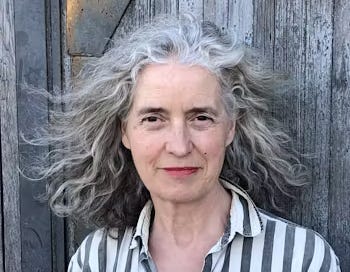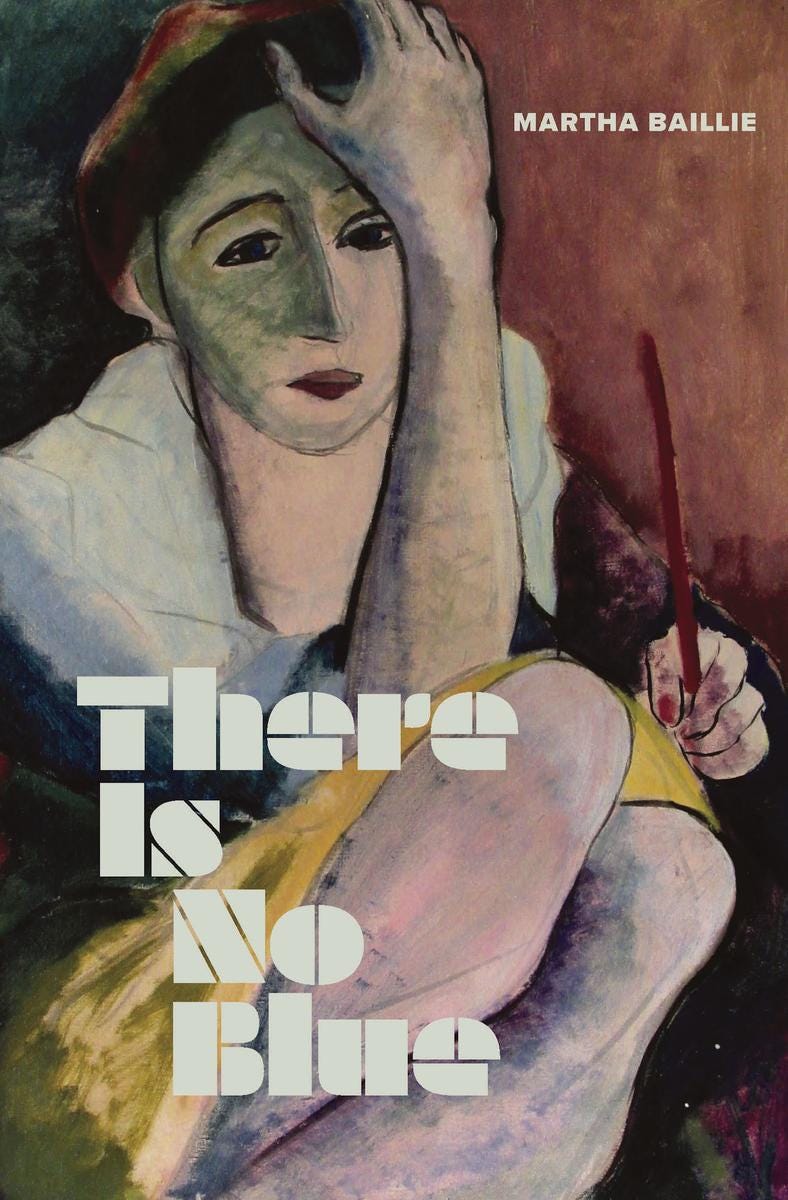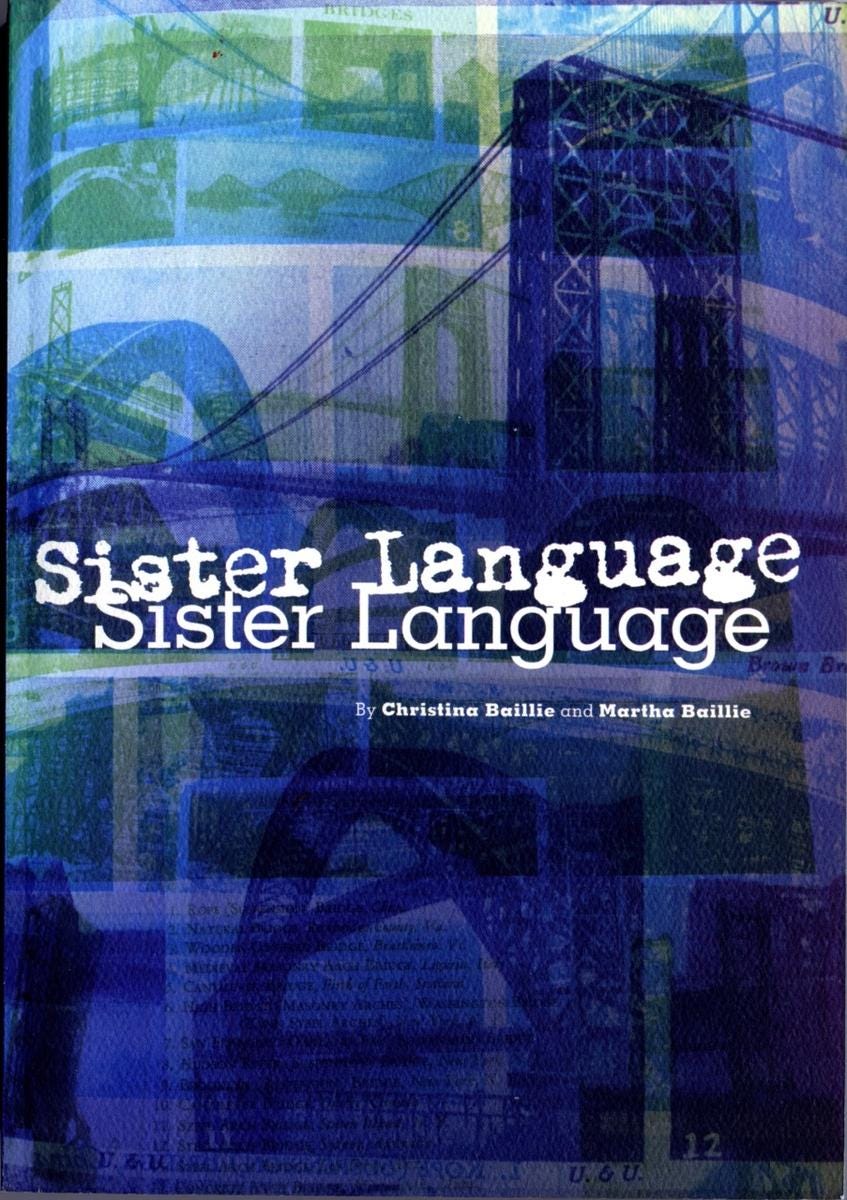Martha Baillie lives and works in Toronto. Her novel The Incident Report was longlisted for the Scotiabank Giller Prize and has been made into a feature film, Darkest Miriam, that launched at Tribeca Festival, in New York in 2024, and is currently showing in Toronto cinemas. The Search for Heinrich Schlögel was an Oprah editors' pick. Sister Language, co-written with her late sister, Christina Baillie, was a 2020 TrilliumAward finalist. Martha's non-fiction can be found in Brick: A Literary Journal . Her poetry has appeared in the Iowa Review . Her multimedia project based on The Search for Heinrich Schlögel is archived at www.schlogel.ca.
Martha won the 2024 Hilary Weston Writers' Trust Prize for Nonfiction for her latest book, There Is No Blue.
Describe your writing space. What do you love about it?
I have no one writing space. I seek silence and solitude in order to write, and love these, wherever I find them.
How important is it to have ‘a room of one’s own’?
Very important. But ‘a room of one’s own” is more than a physical space. It is a state of mind, an obstinate condition, a self-assigned permission.
Any rules for when you’re in this ‘space’?
1. Do not speak to me. 2. Play no music. 3. Make as little noise as possible. 4. Do not try to get my attention—those would be my ideal rules. However, I live with as few rules as possible.
What is your writing practice like?
I begin by re-reading. Next I re-write much of what I wrote the day before. I keep looping back, revising, searching for clues. I never have an outline. Often an initial image exists, and a final one. The tension between these two images, which I think of as pins in a map, is as close as I come to plot—a wave-like movement between two points. Imagine a taut elastic being plucked; for me, that’s plot.
Do you quantify your process by word count or hours spent writing?
What a horrifying idea. Never.
What is your creative process like?
It's about hunger. I read a sentence that excites me then yearn to write one as tremendous. If a piece makes my jaw drop, I try to figure out the structure that gave the work such power.
“My process involves waiting then following—waiting for an idea, an image, a sentence then seeing where it takes me. I also spend a lot of time trimming away the fat.”
What is the easiest and most difficult part of the process for you?
Now and again a passage or a bit of dialogue or an event arrives fully-formed. But that doesn’t mean the rest will come easily. The hardest part is starting.
Why do you write? What do you love about writing?
Writing lands me somewhere unexpected. Writing has the power to absorb me completely. It demands participation from the whole of me. One minute I’m groping in the dark, intuiting, the next I’m making precise calculations, as though I were a surgeon or a banker. All the parts of me must dance nimbly together.
How do you manage writing with other demands on your time?
By ignoring other things. By refusing to do what needs to be done other than write.
What has influenced you most as a writer?
Works by other writers, visual artists, and musicians.
Do you want each book to stand on its own, or are you trying to build a body of work with connections between each book?
I’ve been told that my books are very different from each other. I see them as all grappling with similar questions about what it means to be human. They all express a similar way of engaging with reality, but they weren’t created to constitute an intentionally interconnected body of work.
Best advice you’ve ever been given.
Work at writing, or any craft, for at least ten years before you expect to know what you’re doing.
What does success look like to you?
Many different things. When my writing moves a reader, especially a reader I would not have expected to find my work engaging, I feel gratitude and delight. When a fellow writer whose work I admire responds positively to my writing, this too is thrilling. Recently, I was awarded a significant prize. That also felt very satisfying, while I remain wary of prizes, of the power they wield to single out a small handful of works.
Tell us a few things that would surprise us to learn about you: the person, the writer.
I’ve no idea what might surprise you or not as I don’t know what your present perception of me is.
What can books teach us? How do they change us?
Books is a large category. The books I enjoy give me the opportunity to hang out inside someone else’s mind, a deft yet disciplined mind busily seeking to comprehend and not necessarily succeeding. A good image or sentence opens a window, or tilts my head at a new angle, holds up something familiar in an altered light.
What was a transformative book for you in your life?
Lucy by Jamaica Kincaid.
Who are your favourite writers writing today?
I’m not sure I have favourites. I am an avid reader of anything by Andrè Alexis, or Eva H.D. The list could include: Claire-Louise Bennett, Teju Cole, Sigrid Nunez, Olga Tokarczuk, George Saunders, Etgar Keret, Claire Keegan, Yiyun Li, Kate Cayley.
What books are you currently loving?
I’m just about finished White On White by Aysegul Savas. I wouldn’t say that I love it unreservedly, but I’m intrigued.
If you were a bookseller what 5 books would you hand-sell to readers and why?
The Heart Is a Lonely Hunter by Carson McCullers because of its complex portrait of the inhabitants of a mill town in the southern United States. It is an unforgettable coming of age tale that takes you into the heart of a wise, loner, a teenaged girl who doesn’t belong, and takes you into the convoluted thinking of so many characters.
My Brother by Jamaica Kincaid, because I’ve loved every book of hers but this one in particular I’ve been wanting to return to lately. She looks at life without flinching. Her details, are sharp as needles.
Flights by Olga Tokarczuk, because it refuses to settle, and paints so many beguiling scenes suspended in different times zones.
The Natural Hustle by Eva H.D whose language is fission and frisson.
Maud Martha by Gwendolyn Brooks, not only because my name is in the title, but because it was overlooked, back in 1969, and its song is true and humane.
What advice do you have for writers?
Find editors you trust, who can locate the problems but won’t offer solutions. Treat every sentence like a coin: bite on it to see if it is real.
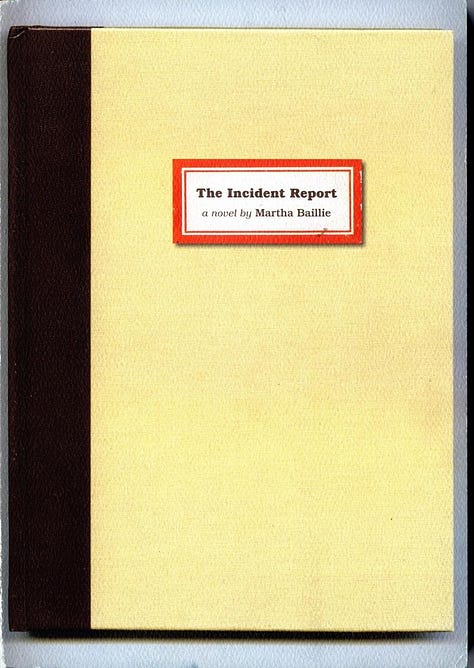
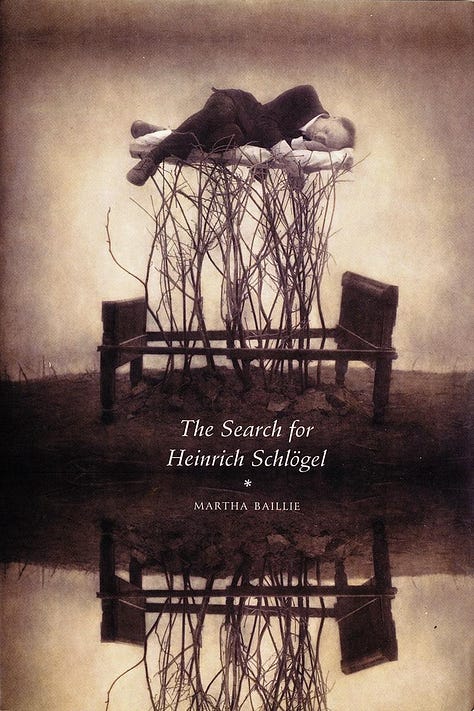
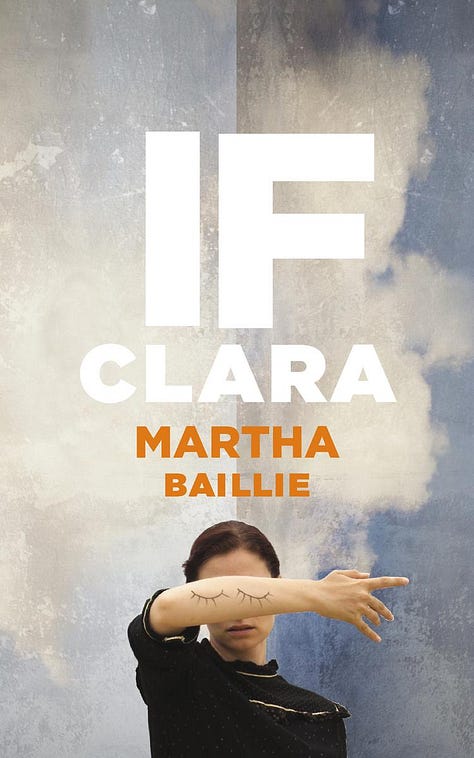
Thank you Martha.
To learn more about Martha, and her books, please visit her at www.marthabaillie.ca

